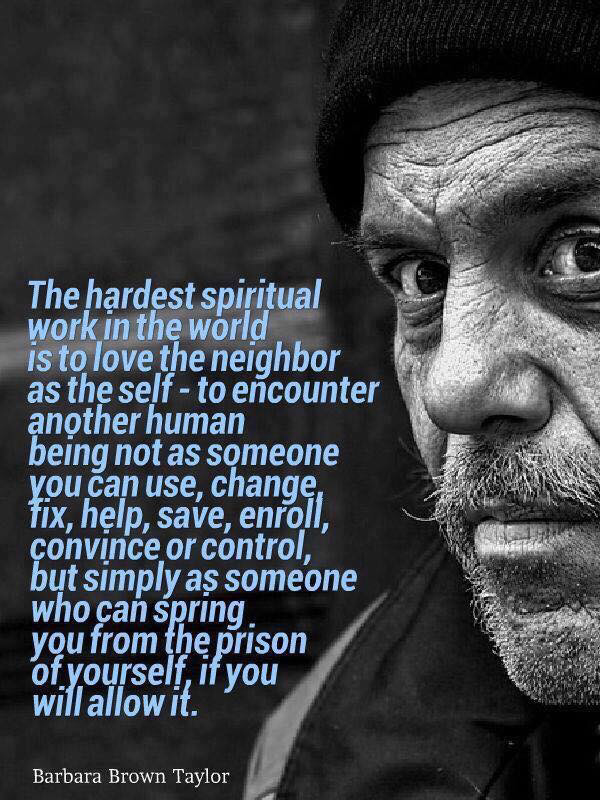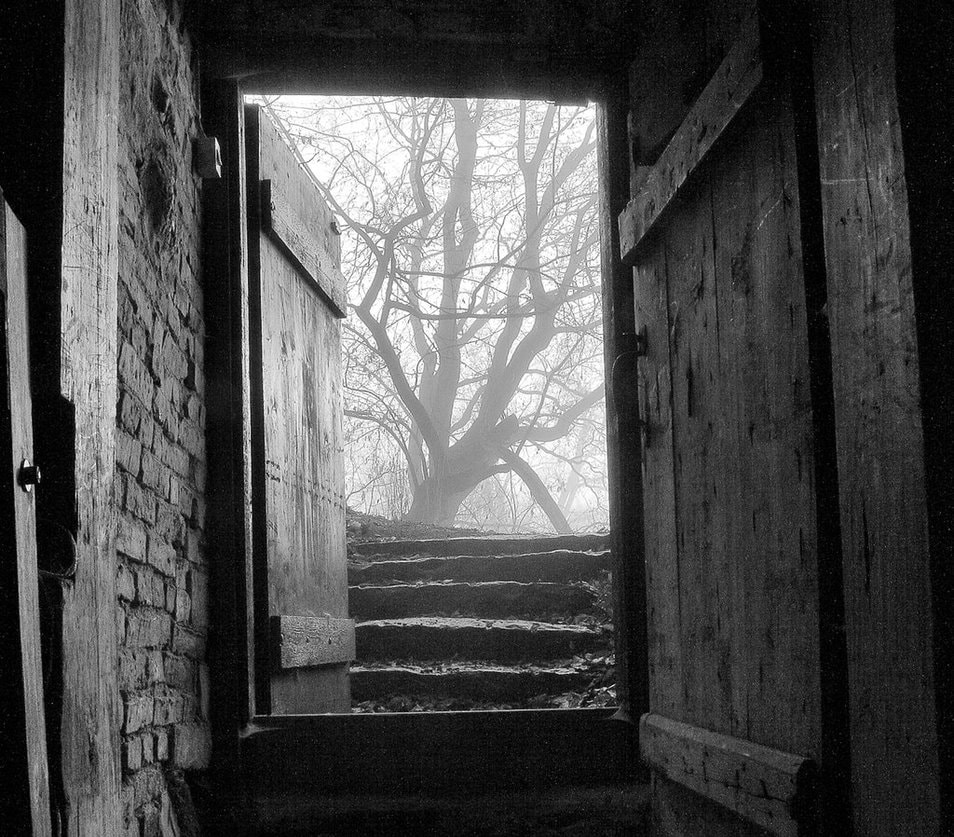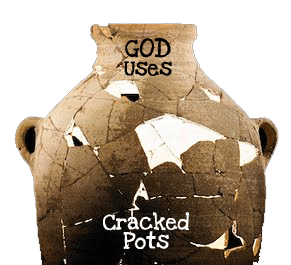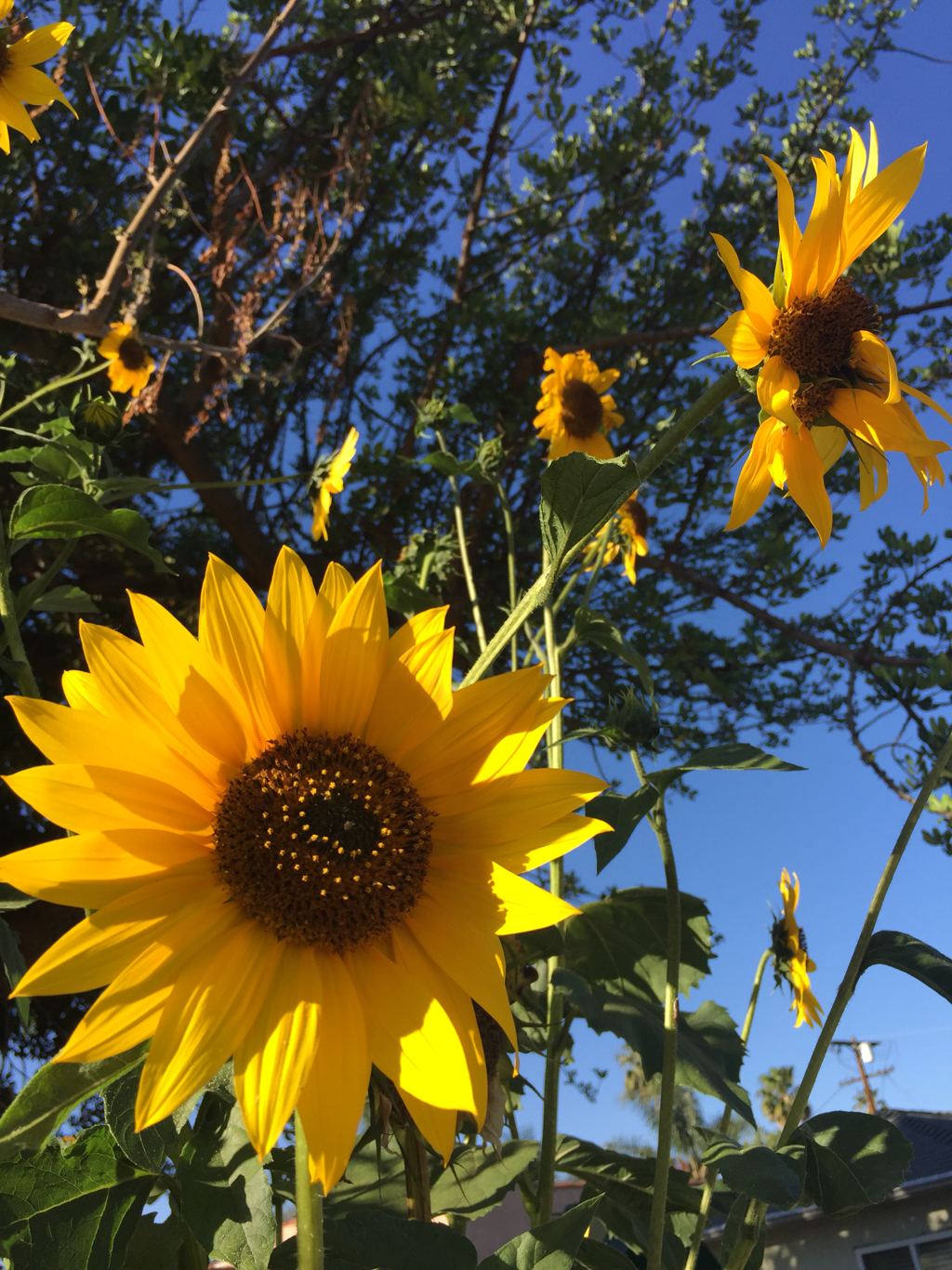When we are ready to die at any moment, we also are ready to live at any moment. “Death often happens suddenly. A car accident, a plane crash, a fatal fight, a war, a flood, and so on. When we feel healthy and full of energy, we do not think much about our deaths. Still, death might come very unexpectedly.
“How can we be prepared to die? By not having any unfinished relational business. The question is: Have I forgiven those who have hurt me and asked forgiveness from those I have hurt? When I feel at peace with all the people I live with, my death might cause great grief, but it will not cause guilt or anger. When we are ready to die at any moment, we also are ready to live at any moment.” Henri Nouwen Bread for the Journey
0 Comments
I think the goal here is to live and dwell in Jesus – to take his flesh and blood, the very essence of what makes him human, and make him your own. Jesus is inviting you to live as he lived; to love as he loved; to dwell in God’s everlasting grace where past mistakes are forgiven, and new life is fashioned and formed by God’s own hand. What Jesus is offering is not a ritual or a religious experience, but a new life and a new home in God’s everlasting heart.
For some, home is a great place to be. It’s filled wonderful memories of family life and the stories that shape who you are. A community bond that you yearn for when you’re away at college or have been shipped off to war. For you, home equals safety and security; a place where the bad stuff in the world is locked out by the same front door that is always open to welcome you in. But that’s not the case with everyone. There are those for whom home is nothing less than a hellish nightmare that you couldn’t escape quickly enough. Instead of safety and security, it’s abuse, dysfunction, and brokenness, which follow you out the door and haunt you wherever you go. Your heart yearns, but in different way. After the ‘94 earthquake I had this unusual yearning to go back to my parent’s house. It wasn’t the main earthquake rattled my nerves. It was the earthquake-size aftershocks that had me on pins and needles for weeks. Any time a truck would rumble down the alley, I’d brace myself for another jolt. After each one I longed to return to Washington, DC where nothing bad or unusual ever happens! Friday, ABC studios transformed our house by sending it back to the 1970’s. Yet no matter how hard we try we cannot change where we come from, but we can change how we live and abide. Jesus invites you to move in with him. He wants you to be his roommate, and to share all the goodness of his life. Leave your baggage behind. All you need to bring is yourself. But you may not want Jesus as your roommate. Not only is he a goody-two-shoes, but he is prone to saying some weird shit. Like, “I am a gate.” He once said to a woman, “I am living water.” And he is often heard saying, “I am the light of the world.” In John’s gospel alone Jesus makes seven of these “I Am” statements – each one offering a deeper, more personal perspective of the incarnate Christ. Today he said, I am the bread that came down from heaven. He’s comparing himself to the manna that God provided for the Israelites in the wilderness. That stuff was temporary. It had a shelf life. Jesus said his bread is everlasting. And if we eat it, we too will live forever. You might be tempted to think Jesus is offering us a way to be immortal like Count Dracula or Kenny from South Park. This is a perfect example of how strange Christian faith can sound even to the most seasoned believer. Amy Howe writes, “Jesus uses these familiar symbols of bread, wine, flesh, blood, and water to teach us about the gift of life, eternal life - not immortality, but a way of living that deprives fear of having the upper hand.” I agree that for us to abide Jesus allows us to live out a way of life that moves us beyond our brokenness into a home where forgiveness and healing are plentiful, and love and joy abounds. Jesus offered his followers this great gift: a home they’ve always yearned for. Now here they are – standing on God’s doorstep. The door is open, but do they embrace Jesus and walk into the house? No, they complain, “it’s too difficult.” And they walk away. Maybe Jesus’ crazy words aren’t so easy to understand. But to deny his life-giving gift seems like a crazier thing to do. But little-by-little most of the people begin to move out until only a few of his closest disciples remain. Why is that? Why do we walk away from such love? Why do we abandon the very thing our heart desires the most? Jesus turned to his disciples and asked them what they’re going to do. And Peter said, “Where would we go? You have the eternal words of life…you are the Holy One of God.” You see, Jesus said some beautiful things too, like “You are forgiven” and “Give me your burdens and I will give you rest.” That’s a good roommate. When we live with Jesus, we live with God. When our home and heart dwell with God, we ourselves become a place where love and peace can flourish. Faith calls us to not simply consume the body and blood of Christ (practice religion), but to also emulate his manner of living and dying for others (practice Christ-likeness). When we abide in Jesus, we cannot separate our flesh and spirit from one another. It is, by it’s very nature, a communal act. So just as Jesus is the incarnation of God in the world, so too are we to be the incarnation of Christ wherever we are. Let’s face it, we know how easy it is to turn away and go at it alone. But like the manna in the wilderness, self-sufficiency only goes so far. Jesus said our flesh is useless. It eventually dies. When we feast on his words we are fed both spirit and life, and become part of God’s divine flesh in all of its eternal fullness. When our life becomes one with Jesus’ life, so to does our death become a part of his resurrection. The Twelve chose to pursuit a life of faithfulness in God through Jesus Christ because they had come to realize that a life in and with Jesus is a full life. A true life. And as hard as it was to practice, it was a way to everlasting life where fear and hurt are transformed into peace and kindness. When we share this life with Jesus, we do by serving others as he did; healing those who are suffering even if it means suffering to do so; to always seek justice, mercy and forgiveness no matter the cost. By abiding in Christ we see how God’s everlasting love and grace moves throughout the world and throughout the ages. Jesus offers you this great gift. He’s calling you home. The door is wide open. But will you walk in? Will you leave your bags behind and find your peace in the welcoming light and love of God? Work Cited: Bartlett, David L., Barbara Brown Taylor, eds. Feasting on the Word, Year B, Vol. 3. (Louisville: Westminster John Knox) 2009. pp.380-85. In his book From Brokenness to Community, Jean Vanier writes, "Those with whom Jesus identifies himself are regarded by society as misfits. And yet Jesus is that person who is hungry; Jesus is that woman who is confused and naked. Wouldn't it be extraordinary if we all discovered that? The face of the world would be changed. We would then no longer want to compete in going up the ladder to God in the light, in the sun and in beauty, to be honored because of our theological knowledge. Or if we did want knowledge, it wold be because we believe that our knowledge and theology are important only so long as they are used to serve and honor the poor."
I have a theology degree. One that I am extremely proud to have received. But like all my other degrees and awards, this hard-earned piece of paper lives in a frame and sits in a box somewhere in my house. In my heart, however, lives the love of Jesus. And my head is filled with the knowledge of God. But somewhere between the head and the heart are my eyes. Each day I am learning to see Jesus with those eyes, by looking for ways to love others and honor God. A companion of Francis of Assisi, Brother Juniper is remembered as a "fool for Christ," and there are all sorts of wild stories about his antics. He was notorious for constantly giving this possessions away and living with a winsomeness that sometimes got him into trouble. At one point, he was ordered by a superior not to give away his outer garment to the beggars anymore. But it wasn't long before he met someone in need who asked him for some clothing. He said, "My superior has told me under obedience not to give my clothing to anyone. But if you pull it off my back, I certainly will not prevent you." Francis is said to have joked about how he wished for a forest of Junipers. The story of Brother Juniper and quote from Jean Vanier can be found with many other great stories and liturgy in Shane Claiborne's Common Prayer: A Liturgy For Ordinary Radicals. (Zondervan: 2010).
In Psalm 61, the author pleads to God, "Hear my cries! Listen to my prayers!...Lead me to the rock that is higher than I." It reminds me of when the tsunami hit Phucket, Thailand in 2004. Before the area was slammed by massive waves and rise in sea tide, the animals began to run up to the hills and mountains to save themselves. They instinctively knew to get to higher ground to seek protection. As a result many of the animals were saved.
Humans love this idea of saving themselves. This an attitude tricks us to believe that we can pretty much do anything on our own. And for the most part, we can. Bathe ourselves, feed ourselves, pay our bills on time, and even self-diagnose and medicate ourselves. But when the waters of life begin to rise, and our ego supersedes our instincts to run up to the hills, no valiant effort is enough to save ones self. As we get trapped in a situation, especially a really bad one like a tsunami, we wind up spending all our energy and efforts just trying to keep our heads above water. The psalmist, like all those smart animals, doesn't do it this way. Instead, he (or she) cries out to God, "Lead me to the rock that is higher than I; for you are my refuge, a strong tower against the enemy." More than a song or poem, this is a confession as much as it is a plea. "I can't do this, God...But you can!" The I might be strong, but not stronger than a tsunami. I might be smart, but not nearly as gifted as an animal. I might be faithful, but my faith in myself pales in comparison to God's faithfulness and God's faith in me. And so, I too turn to God, my rock and my salvation. God changes our perspective on whatever situation we might be faced with today. When we are caught up in the midst of a difficult situation, we need to get to the rock that is higher than we are, stronger than we are, and tougher than we'll ever be. This is what it means to be a part of God's family. We can always rely on God to protect and care for us. Likewise, as children of God, we too have a responsibility. Whenever we see someone else suffering or scared, or just barely holding on, we must become a mountain for them to climb up. Jesus was a revolutionary who did not become an extremist, since he did not offer an ideology, but himself.It’s been a while since I busted out my yellow highlighter from my bedside table. Almost as long as picking up the book that’s been buried under a stack of other neglected books.
I picked up where i left off, about 20 pages into The Wounded Healer, by Henri Nouwen (1932-1996). (Yes, it might seem I am obsessed with this Belgian priest. Perhaps I am, so what.) Somehow I’m picking up after he speaks of “experiential transcendence” as a means to break out of the spiritual cocoons we find ourselves in. He offers three ways: the mystical way, the revolutionary way, and the Christian way. Revolution is better than suicide. Transcending in the mystical way allows us to “create distance from the unrealities of our own ambitions and urges, so humanity can break through the vicious circle of self-fulfilling prophecy that makes us suffer from our own morbid predictions.” By this we become no longer isolated individuals but beings that transcend the walls and barriers we put up between us and the other; reaching out “beyond the concerns of the self; there we come to a place where all people are revealed as equal and where compassion becomes a human possibility.” The revolutionary way is a “total radical upheaval of the existing order, together with a drastic change of direction, can prevent the end of everything.” I like this idea and identify better with the goal of “not making a better human being, but a new human being; ruled not by manipulation and supported by weapons, but is ruled by love and supported by new ways of communication.” The third way, is Christ’s way. “In Jesus the mystical and the revolutionary ways are two sides of the same attempt to bring about radical change.” Nouwen will argue that Jesus’ appearance in our midst has “made it undeniably clear that changing the human heart and changing human society are not separate tasks, but are as interconnected as two beams on a cross.” “Jesus was a revolutionary who did not become an extremist, since he did not offer an ideology, but himself. He was also a mystic, who did not use his intimate relationship with God to avoid the social evils of his time, but shocked his milieu to the point of being executed as a rebel.” When we can see how these pieces work intimately together, we begin to see how Jesus is everywhere there are mystics and revolutionaries; from Black Lives Matter marches to parental fights with school district superintendents to kids laughing to this old minister wondering why the hell God called him to be a punk, preacher, and peace keeper. Nouwen, Henri. The Wounded Healer. (New York: Image) 1972, pp. 20-25. “There are always two worlds. The world as it operates is largely about power; the world as it should be, or the reign of God, which is always about love...Any exercise of power apart from love leads to brutality and evil; but any claim to love that does not lead to using power for others is mere sentimentality and emotion... I think that is what Jesus means when he tells us to be "cunning as serpents but gentle as doves" (Matthew 10:16)...It is a beautiful combination of both authority and vulnerability... The reign of God includes both love and power in a lovely dance.”
Adapted from: Rohr, Richard. Jesus’ Plan for a New World: The Sermon on the Mount, p. 41
For example, a few minutes after the phone call ended, my daily bible reading spoke to what Tiffany and I had just shared. In the devotional was a story that reminded me I didn’t have to be so hard on myself. God’s got this.
The story was about a cracked pot. And it goes like this. A water-bearer in India had two large pots, both hung on the ends of a pole, which he carried across his neck. One of the pots had a crack in it, while the other pot was perfect and always delivered a full portion of water. At the end of the long walk from the stream to the house, the cracked pot always arrived half full. The poor cracked pot was ashamed of its own imperfection, and miserable that it was able to accomplish only half of what it had been made to do. After two years of what it perceived to be a bitter failure, it spoke to the water-bearer one day by the stream: ‘I am ashamed of myself, and I want to apologize to you. I have been able to deliver only half my load because this crack in my side causes the water to leak out all the way back to your house. Because of my flaws, you have to do all of this work, and you don’t get full value from your efforts.’ The bearer said to the pot, ‘Did you notice that there were flowers only on your side of the path, but not on the other pot’s side? That’s because I have always known about your flaw, and I planted flower seeds on your side of the path, and every day while we walk back, you’ve watered them. For two years I have been able to pick these beautiful flowers to decorate the table. Without you being just the way you are, there would not be this beauty to grace the house.’ The author of the devotional concluded the story with this affirmation, “Thankfully, God uses cracked pots! You do not need to be perfect for God to use you.” Think about that statement. You don’t need to be perfect for God to use you. Whether you are chipped, cracked, or shattered into tiny pieces, God finds a way to use us for restorative purposes. Both my conversation with Tiffany, and this story, helped me to remember my purpose – to proclaim God’s love and grace through my words and deeds. Am I perfect at it? Not at all. Do I fail often? More than I’d like. Does it stop me from trying? No. I don’t need to be perfect for God to use me. And neither do you. Your story, your scars, and all your imperfections and misdeeds, are all the ways God uses us to tell Jesus’ story of overwhelming love and saving grace. This is why it’s called the good news. And why we were called to proclaim it to every corner of the world. Easier said than done when you have a seminary degree. Consider the man who was born blind in John’s gospel. The disciples asked Jesus, 'Was this man born blind because of his own sins or his parents' sins?' Jesus answered, “Neither. This happened so the power of God could be seen in him." When the Pharisees asked the man about who healed him, the man said this about Jesus, "He is a prophet! If this man were not from God, he couldn't have done it." Before Jesus came into his life, the blind man had his story that came with all the usual stigma’s attached to being born that way. After Jesus did what he did, the man’s story becomes God’s testimony. His eyes are open to the truth and he becomes a living witness to God’s power in the world. Because of Jesus, this man was able to see God do some truly amazing things. He didn’t understand how it happened but was happily surprised that it did happen. And he shared that joy with everyone. I am constantly surprised by the way God loves me. And in spite of my brokenness, God still finds a way to make me a part of his service and plan. From Moses, to David, to Mary, and Peter, to you and me, God takes our weaknesses and makes them our strengths. In his second letter to the Churches in Corinth, Paul writes, “Three different times I begged the Lord to take this [thorn in my flesh] away. Each time he said, 'My grace is all you need. My power works best in weakness.' So now I am glad to boast about my weaknesses, so that the power of Christ can work through me. That's why I take pleasure in my weaknesses, and in the insults, hardships, persecutions, and troubles that I suffer for Christ. For when I am weak, then I am strong." The Apostle takes pleasure in his weakness and brokenness because he knows this is where God is most active in his life. And wherever God is active in your life, you too can rest assured that you can do anything God has called you to do. You don’t need to be perfect. Just faithful. Like the water-bearer, God is planting seeds along the paths we walk, and God is enjoying the beauty that our flaws help to create. Yet we have to walk the walk, do what we are called to do! Through Jesus Christ we receive all the grace we need to make us strong enough to overcome insults and hardships and the personal attacks on our faith that chip away at our core and cause us to crack in the first place. In following Christ we not only find our strength, but learn also how to use it for the good of God’s kingdom and our communities. By our words and deeds we proclaim the good news that heals and restores. So don’t worry if your faith is all dinged up or you have a low Bible IQ, God can and will use you in the most amazing and creative ways. The bible is filled with examples of ordinary people like us, who did some extraordinary things that led people back to God’s welcoming heart – the very heart of everlasting love where your story began. Perhaps your purpose isn’t to be a preacher or a pastor. Maybe it’s just being a good friend, a faithful spouse, or a compassionate human who seeks to do some good in the world. God will use you. Maybe you’re being called to get involved in local issues; making sure there’s justice and fairness imbedded in your community. Look around your neighborhood and ask God where you can be of service. Then step out in faith, knowing God is your strength. Maybe your call is to support a particular mission, like this one, which reaches people who’d never step foot in a church. With so much hurt in the world, there is still more work to be done. And the people who have been called to do that work need more than just your thoughts and prayers. We’ve been given the story of Jesus, the healing balm that brings relief to those who are suffering. And we are called to share it so eyes can be open and hearts can be healed. There are many ways God uses us to proclaim gospel of Jesus Christ. And as St. Francis of Assisi taught, if you have to use words to do so, well then, the more the better. “One of the greatest acts of faith Is to believe that the few years we live on this earth or like a little seed planted in a very rich soil. For the seed to bear fruit, it must die.” Jesus uses the example of a mustard seed. But I like to think of the sunflower seed. For the sunflower lives and blooms for just a short time. Yet it produces hundreds of seeds to drop when it dies. Those seeds are born again in a new form. Resurrection is built into nature!
We are part of nature, made in the creative and glorious imagination of God. We must not fear dying, but hold fast to the faith in the One who overcame death and resurects us to keep this cycle going until heaven and earth become one. Nouwen, Henri. Finding My Way Home. Crossroads Publishing 2004. I sometimes feel like a thief. As if I’m stealing other people‘s brilliant ideas to make me look smart. In reality I’m just dealing great ideas so you can become spiritually smart. The house of Henri Nouwen should keep their doors locked. For it’s in there resides a treasury worth more than gold. And it is just sitting there hidding in plain sight.
This is what i nabbed today: Often we are preoccupied with the question "How can we be witnesses in the Name of Jesus? What are we supposed to say or do to make people accept the love that God offers them?" These questions are expressions more of our fear than of our love. Jesus shows us the way of being witnesses. He was so full of God's love, so connected with God's will, so burning with zeal for God's Kingdom, that he couldn't do other than witness. Wherever he went and whomever he met, a power went out from him that healed everyone who touched him. (See Luke 6:19.) If we want to be witnesses like Jesus, our only concern should be to be as alive with the love of God as Jesus was. While it might seem like I am inviting you to break a holy Commandment, I’m not inviting you to steal as much as I’m inviting you to take whatever you want. Its God’s love. It’s yours. It’s mine. It’s for us all to share and give away. Nouwen, Henri. Bread for the Journey, Harper: New York, 1996. August 10, 2018. |
Ian MacdonaldAn ex-copywriter turned punk rock pastor and peacemaker who dedicates his life to making the world a better place for all humanity. "that they all might be one" ~John 17:21“Prius vita quam doctrina.”
~ St. Thomas Aquinas (1225–1274) * “Life is more important than doctrine.”
Archives
June 2024
|





